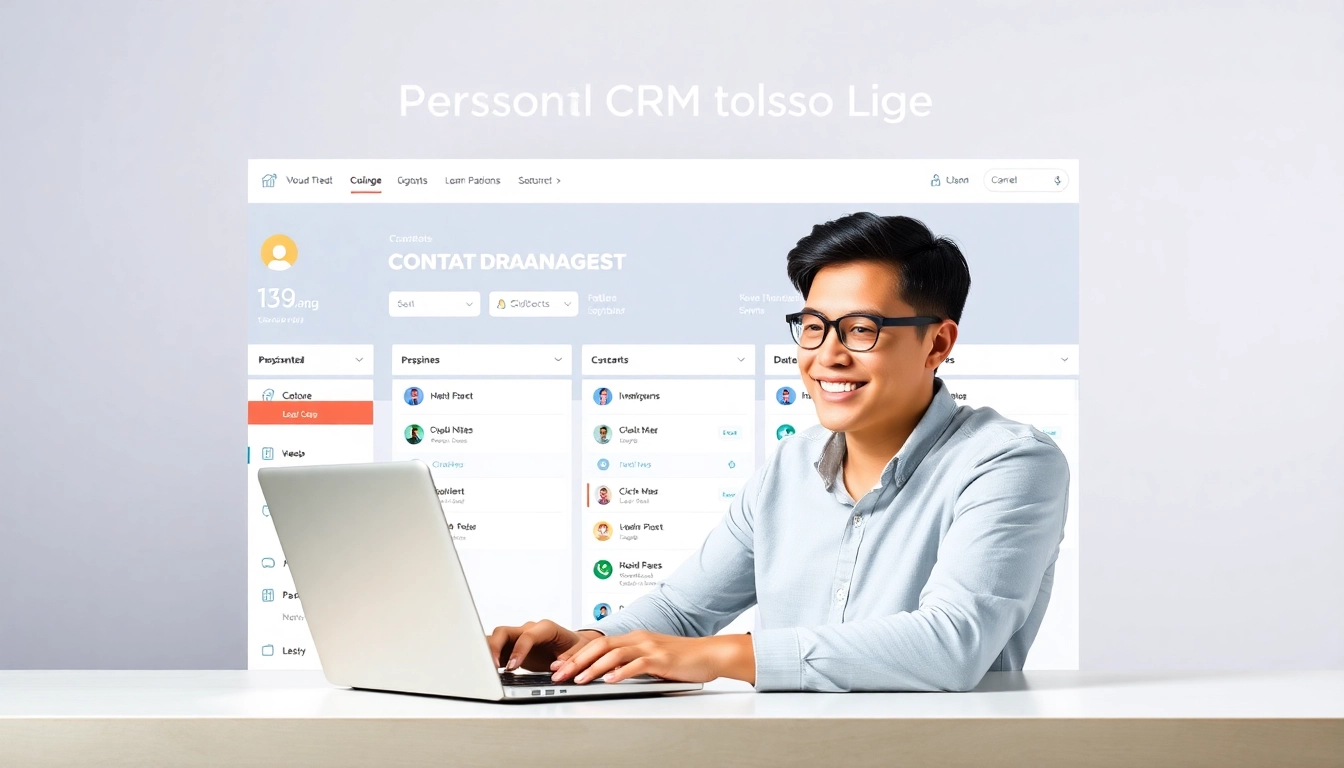Understanding the Need for a Personal CRM in College
In the dynamic environment of higher education, students face an array of networking opportunities—from classmates and professors to alumni and industry professionals. Managing these connections effectively is vital for academic success, career development, and personal growth. Traditional contact management methods, such as notebooks or basic digital address books, often prove insufficient in keeping track of the myriad relationships cultivated during college years. This is where a Orvo – Best personal CRM for college comes into play, offering tailored solutions designed to enhance student networking and contact management.
The Challenges of Student Networking and Contact Management
Students frequently encounter challenges when managing their contacts, including the following:
- Fragmented Information: Contacts stored across various platforms such as social media, email, and messaging apps make it difficult to maintain a cohesive view of relationships.
- Limited Follow-Up Capabilities: Without reminders or proper organization, students tend to forget important conversations or updates, risking the loss of valuable connections.
- Time Constraints: Balancing coursework, extracurricular activities, and social interactions leaves little room for meticulous contact management.
- Difficulty in Prioritization: Not all contacts hold the same importance; distinguishing potential mentors from casual acquaintances can be complicated without proper tools.
Why Traditional Tools Fall Short for Students
Basic tools like spreadsheets, personal notebooks, or simple contact apps lack the intelligence and integrations required for effective relationship management. These methods often lead to disorganized records, missed follow-ups, and an overall inefficient networking process. Moreover, they lack automation features like reminders, categorization, and notes that adapt to a student’s evolving social landscape. As a result, students are left with a reactive approach instead of a proactive, strategic system—something a personal CRM can resolve comprehensively.
How a Personal CRM Can Boost Academic and Social Success
Implementing a personal CRM tailored for students transforms networking from a chaotic endeavor into a strategic asset. It facilitates sustained relationships, unlocks new opportunities, and helps manage academic collaborations effectively. For example, students can schedule timely follow-ups with professors or alumni, organize contacts by relevance or event, and track progress on mentorships or group projects. Such capabilities foster a proactive approach to relationship-building, ultimately enhancing academic performance and career prospects.
Key Features That Make Orvo the Top Choice for College Students
Choosing the right personal CRM is crucial, and Orvo excels because of its targeted features designed specifically for students navigating complex social and academic networks.
Intuitive Interface for Easy Contact Organization
Orvo offers a user-friendly interface that allows students to effortlessly input, categorize, and retrieve contact information. Whether managing classmates, professors, or industry contacts, students can add tags, notes, and custom fields to keep their contact list clear and organized. The visual layout minimizes the learning curve, ensuring students can quickly get started without technical hurdles.
Seamless Integration with School Platforms and Contacts
One standout feature of Orvo is its ability to integrate with commonly used school platforms, email services, and social media profiles. This integration means contacts imported from LMS systems, email accounts, or LinkedIn can be consolidated into one dashboard. Such synchronization ensures that students maintain a unified view of their network, reducing duplication and oversight.
Reminders and Follow-Up Tools to Maintain Connections
Keeping relationships alive requires timely follow-up. Orvo’s built-in reminder system prompts students to reconnect with contacts at optimal intervals, whether for checking in, congratulating on milestones, or scheduling meetings. These automated alerts prevent relationships from stagnating and facilitate ongoing engagement, critical in academic and professional growth.
Comparing Orvo with Other Personal CRM Options
With many CRM solutions available, understanding how Orvo distinguishes itself is vital for students making an informed decision. Here, we compare Orvo’s unique selling points against popular alternatives like Monica, Dex, Clay, and Folk.
Unique Selling Points of Orvo for Student Use
Orvo’s tailored features for students include:
- Focus on Networking in Academia: Specifically designed to manage contacts relevant to academic and personal growth.
- Mobile-First Design: Optimized for smartphones, enabling on-the-go contact management during campus activities.
- Easy Categorization for Diverse Contacts: Students can easily sort contacts into categories like ‘Professors,’ ‘Clubs,’ or ‘Internship Leads.’
- Intelligent Reminders: Context-aware follow-up prompts aligned with academic calendars and deadlines.
Pros and Cons of Alternative Personal CRM Apps
While alternatives like Monica or Dex offer comparable features, they often lack the specific focus on student networking or seamless campus platform integration. For instance:
- Monica: Excellent personal relationship management but may have a steeper learning curve for students unfamiliar with CRM terminology.
- Dex: Offers robust contact automation but might be less optimized for academic-specific features.
- Clay: Known for its visual interface but limited integration with educational systems.
- Folk: Affordable and straightforward but may lack advanced reminders and categorization options geared for academic settings.
Case Studies: Success Stories from College Users
Some college students have successfully employed Orvo to maximize their campus networking:
- Sarah, a senior student: Used Orvo to keep track of faculty contacts for research collaborations, resulting in a published paper and a competitive internship.
- James, an undergrad: Organized alumni contacts for career advice, leading to mentorship opportunities and job referrals.
Implementation Tips for Maximizing Orvo’s Benefits
Setting Up Your Profile for Optimal Networking
Begin by importing existing contacts through integrations or manual entry. Customize categories to reflect various relationships—professors, classmates, potential employers, or student organizations. Use consistent tagging and note-taking to ensure easy retrieval and context recall later.
Organizing Contacts by Class, Clubs, and Mentors
Use Orvo’s grouping features to segment contacts based on relevance. For example, create groups for each semester, extracurricular activities, or internship programs. This segmentation simplifies follow-up scheduling and targeted communication.
Regularly Updating and Engaging Your CRM
Schedule periodic reviews—weekly or bi-weekly—to add new contacts, update existing information, and set follow-up reminders. Engage by sending personalized messages, congratulating milestones, or sharing relevant academic opportunities. Such consistency ensures your network remains active and valuable.
Measuring Success and Continuous Improvement
Tracking Relationship Growth Over Time
Utilize Orvo’s analytics features to monitor contact engagement and follow-up completion rates. Measuring these metrics reveals your networking effectiveness and highlights areas for improvement.
Using Analytics and Insights for Better Engagement
Leverage insights such as frequency of interactions or upcoming milestones to refine your outreach strategy. For example, if a contact hasn’t been engaged in several months, schedule appropriate follow-up actions.
Adapting Your CRM Strategy During College Life
As your academic journey progresses, your contact priorities will shift. Regularly reassess your categories and interaction strategies. During internships or job searches, focus more on professional contacts. Post-graduation, emphasize alumni and industry connections for career development.



